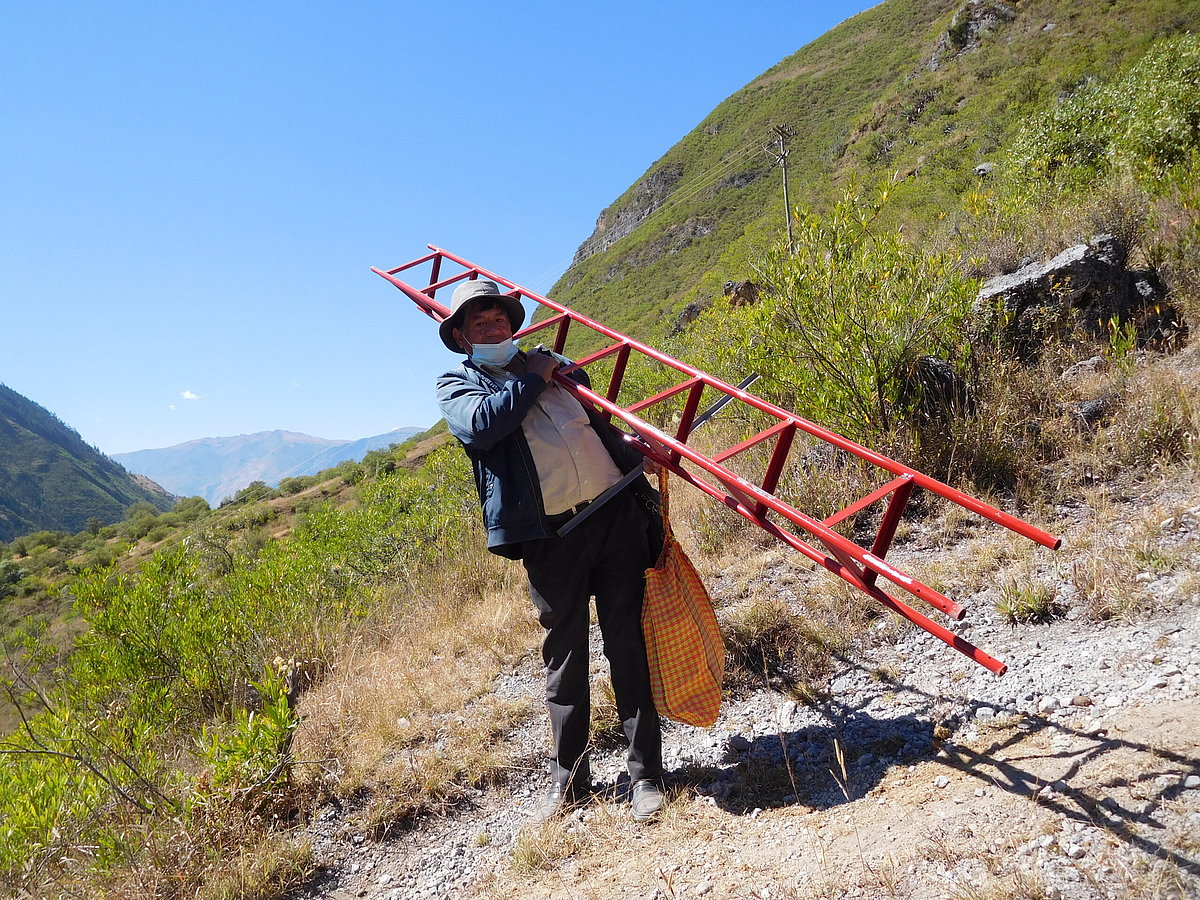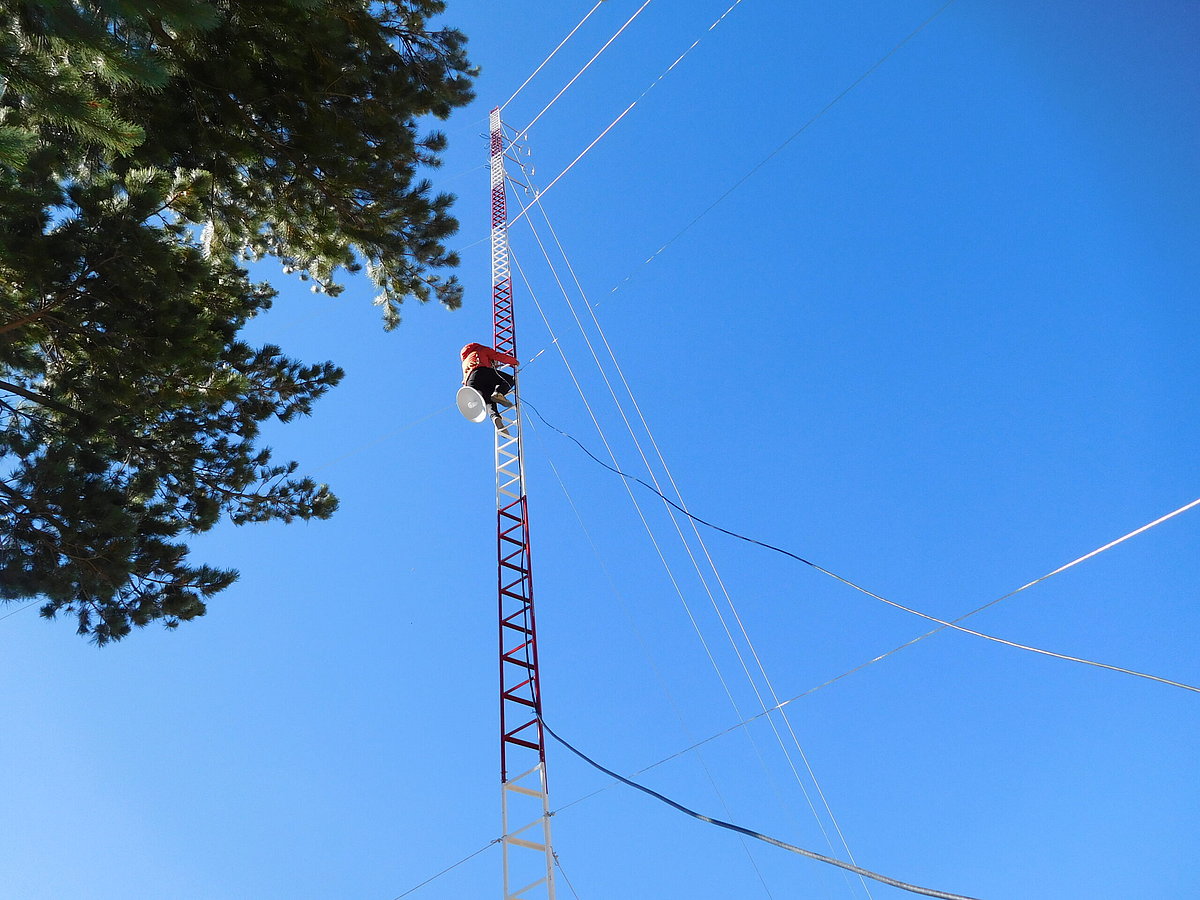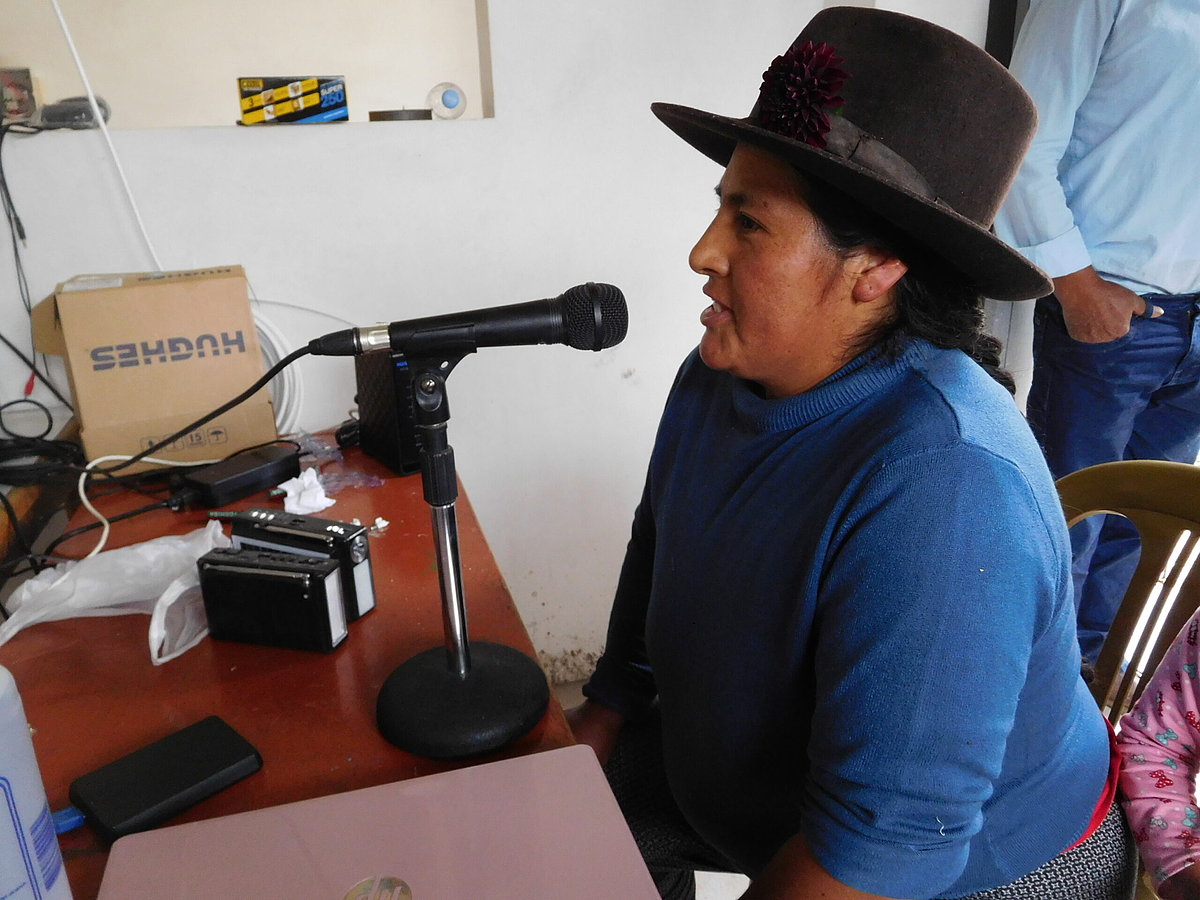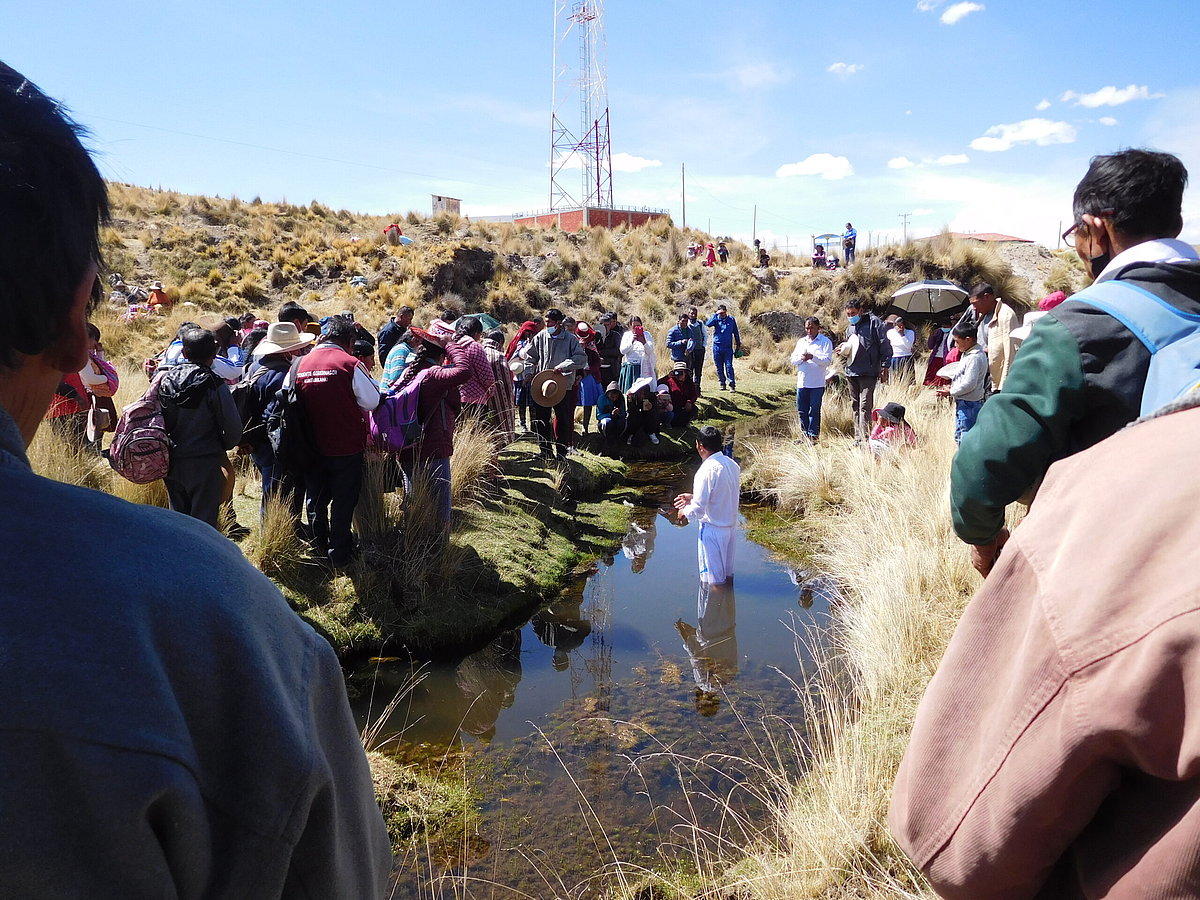More than a glimmer of hope for the Ketschuas in Peru
Who would have thought… thanks to Corona, the digital age has reached the vast areas of Cusco and Apurimac by the Ketschuas.
For months, there were no worship services in-person and congregations met only virtually. However, the pandemic did not only bring people blessing with technological progress. For the first time, many families had cell phones. The children used these for their online lessons. But some of the children became immersed in the world of online games, developed emotional problems, and their school performance declined. Economic hardship and pandemic isolation also triggered crises in many families. In Curahuasi, the pastor couple Mesares offered marriage counseling. Five couples who wanted to separate accepted the help. Discussions and joint prayers opened up new opportunities for their partnership. They consciously placed themselves anew under God's blessing as families.
There is at least one radio in every house in the Andean region among the ketschuas. This circumstance has long been used to spread the Gospel! Now a long-cherished dream came true for the community in Mariscal Gamarra: at the beginning of the year 2021 they received permission to build a radio station. Immediately a radio station and a radio mast were built in Mariscal Gamarra. The individual parts for it had to be carried laboriously by donkey or on foot, high into the mountains.
Theological training sessions and devotions were prepared for the broadcasts, and a musical program was also included. Involved pastors and leaders were specially trained for this. For many of them, this was their first experience of speaking on a radio station. Pastor and church planter Modesto Punal from Yanaoca, who has been actively involved in radio work for a very long time, was won over for the training. Since January 2022, Radio Mosoq Kawsay - which means "New Life" in the Ketchua language - has been on the air every morning. This radio project was also financed by donations from communities in Argentina and Brazil.




